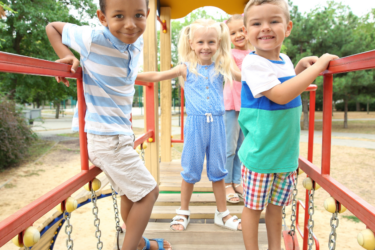The statistics on child sexual abuse aren’t well known, but they are seriously alarming. According to reports, experts estimate that one in 10 children are sexually abused before their 18th birthday. Approximately 35 percent of youth sexual abuse victims are 11 years old or younger.
Perhaps the most shocking revelation about child sexual abuse is that more often than not, the abuser isn’t a stranger – it’s someone the child knows and perhaps even trusts.
The U.S. Department of Health and Human Services reports that 90 percent of child sexual abuse victims know their abuser. Other estimates reveal that approximately 60 percent of victims are abused by someone their family trusts. It’s also reported that approximately 30 percent of children are actually abused by a family member.
“Because the overwhelming majority of predators are someone the victim knows, children should be warned about the danger of that possibility in addition to stranger danger,” says Gregory Zarzaur, Esq., a founding member and lead trial attorney at Zarzaur.
Unfortunately, that isn’t the case for many kids, as it’s often incredibly difficult for parents or guardians to talk with their children about the potential of sexual abuse, much less about the possibility of it being at the hands of someone they know.
“Most parents never talk with their children about the dangers of sexual abuse,” says Cindy Greer, executive director of the Shelby County Children’s Advocacy Center, Owens House, which serves children that survive both sexual and physical abuse. “Some are afraid the conversations will scare their child. Some simply do not know where to start. Knowledge about sexual abuse helps protect children. Lack of knowledge leaves children vulnerable.”
That knowledge, Greer adds, should be given to children over and over again – not only to help them remember, but to help reinforce. “Remember how many teaching moments it took for your child to learn about the dangers of crossing the street? The same applies to the dangers of sexual abuse. Talk to your children. Give them the tools they need to protect themselves,” she says.
Providing knowledge to children is also one of the goals of Children’s Hospital Intervention & Prevention Services Center, better known as CHIPS Center. Since 1995, in addition to providing non-acute forensic medical exams for child maltreatment and counseling, CHIPS also focuses on prevention as it visits schools all across Birmingham to talk with students about prevention education. Debra Schneider, executive director, and her team talk to kids of all ages about the potential risks of sexual abuse, including the correct terminology for body parts, feelings, and even safety plans.
“When we introduce this topic as another safety plan, it doesn’t make it as scary,” Schneider explains. “The whole point of teaching a safety plan isn’t just to keep them safe, but to empower them so that they will know what to do. If they get lost in a store, what should they do? A safety plan empowers them if they are in a scary situation. So that’s how we approach the topic of sexual abuse too.”
CHIPS suggests that the safety plan for sexual abuse include all sorts of suggestions and guidelines for the potential situation, including trying to get away and being sure to tell someone. “We ask them to tell a trusted adult,” Schneider says. “We help them identify those adults, whether it’s mom or dad or the school nurse or a teacher. We make sure to help kids identify people outside of their family that can be trusted adults because sometimes it can be easier for them to tell someone outside of the family if the perpetrator is a family member.”
The team at CHIPS also helps students think through and practice actually telling someone by doing role-play because oftentimes it is quite difficult for kids to tell after the abuse actually happens. “We teach the kids to practice being powerful,” Schneider explains. “We also warn them that adults will have lots of questions, which can make kids shut down. So we practice by role-playing and walking through the questions and various emotions adults might exhibit.”
One of the problems many children face when trying to tell a parent or adult about sexual abuse is that the adult doesn’t believe them. Not only does that make the child feel uncomfortable, but it can also lead to them not telling anyone in the future, Zarzaur adds. “The most important thing an adult can do in that situation is to reassure the child that you believe them,” he says. “Unfortunately, studies have shown that children will sometimes have to tell up to five or six adults before they are believed. That can obviously be a deterrent for a child to report.”
What also can be a deterrent for a child to report an abuse situation, Zarzaur notes, is the parent choosing not to take any type of action on the allegation. A parent might be well-intentioned about not publicly talking about what happened to their child, but there are serious negative consequences to that decision.
“Parents may think the best thing for their child is to not talk about what happened, but that could adversely project upon the child that they have something to be ashamed about or that they did something wrong,” he says. “Even though the parent thinks they are doing what’s best for the child, the child internalizes that as something shameful that shouldn’t be discussed.”
In addition to all of the steps parents need to take to protect their children from sexual abuse or help the child if sexual abuse were to happen, it’s critical for parents to first recognize that it’s not just about protecting their children from strangers – they cannot overlook it possibly being at the hands of someone they know or trust, adds Allison Dearing, executive director at One Place, a nonprofit family justice center that helps sexual abuse survivors by providing coordinated services through multidisciplinary teams of professionals that work together at one location.
“We have to say it out loud and talk about it,” Dearing says. “There are numerous places in the community where people have access to a lot of kids, and parents have the right to ask questions to understand who is around their children. They must do that.
“Even if it’s people we think we know, we must be aware that there is always a risk. We can’t live in fear, but that’s another reason why we teach our children to be advocates for themselves.”
Paige Townley is a Birmingham freelance writer.





